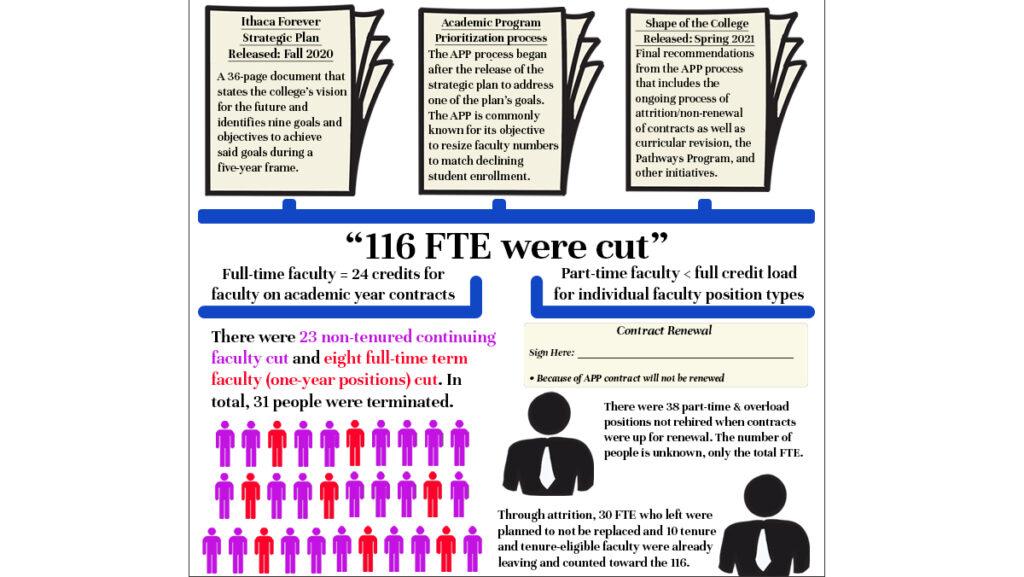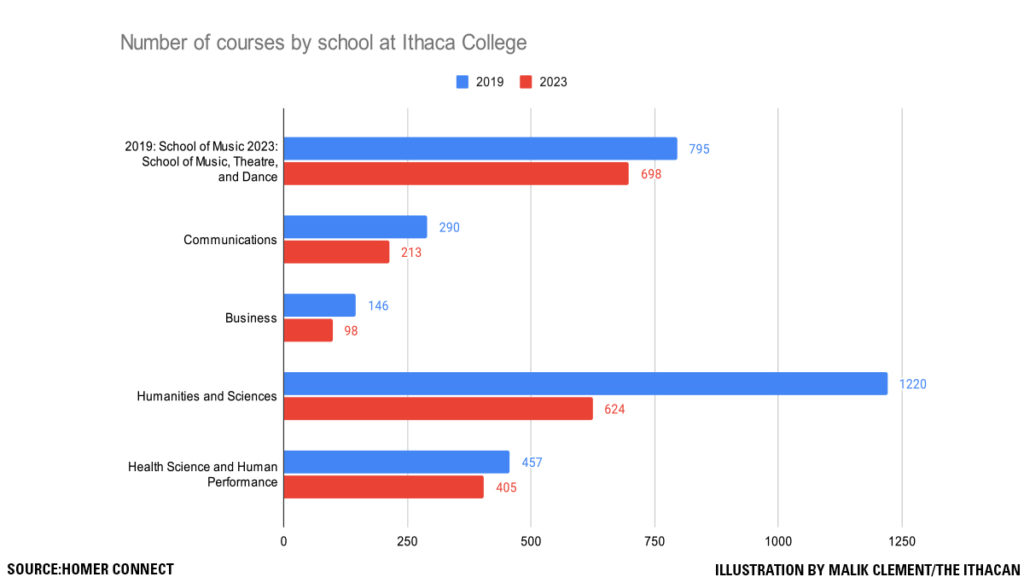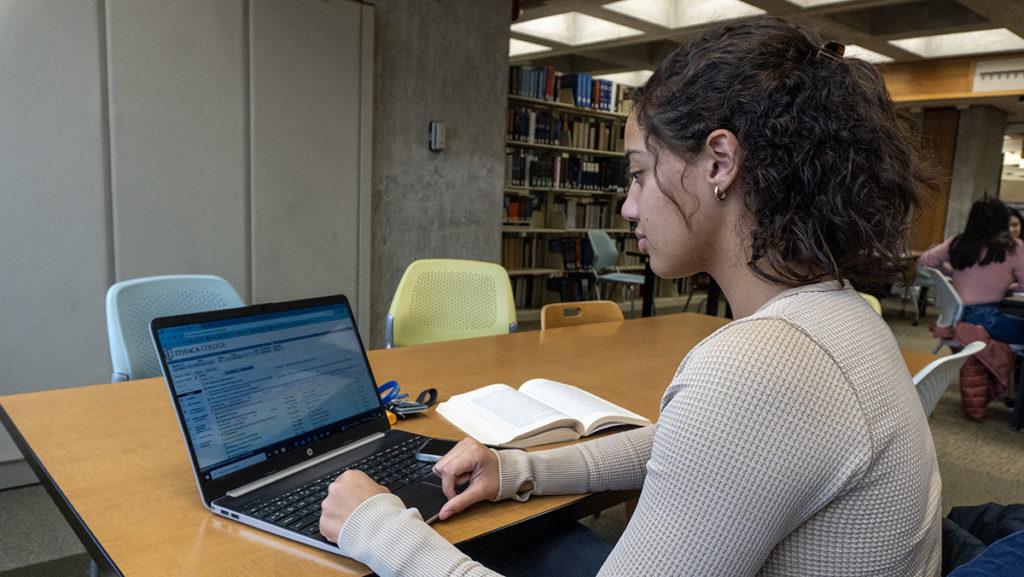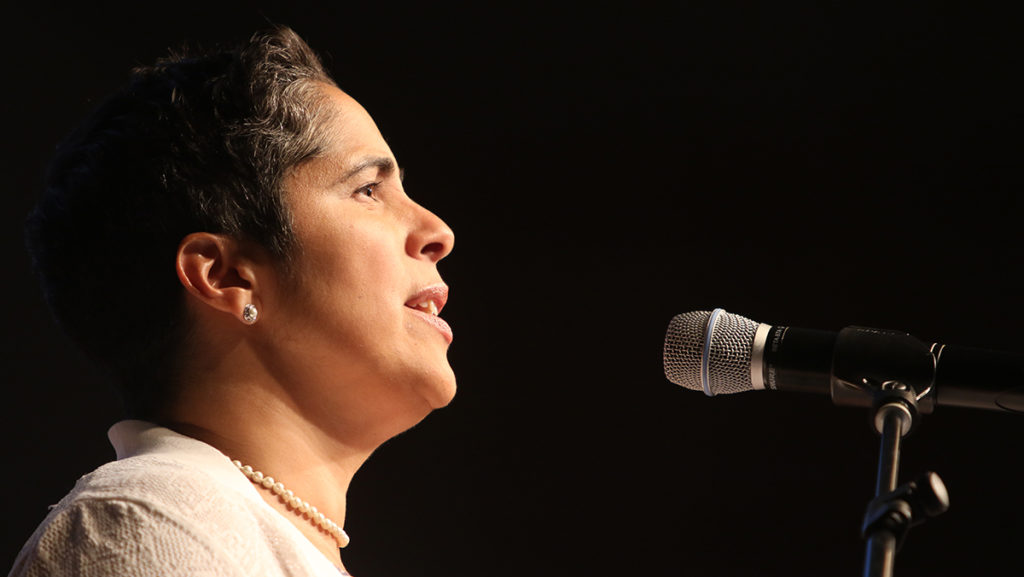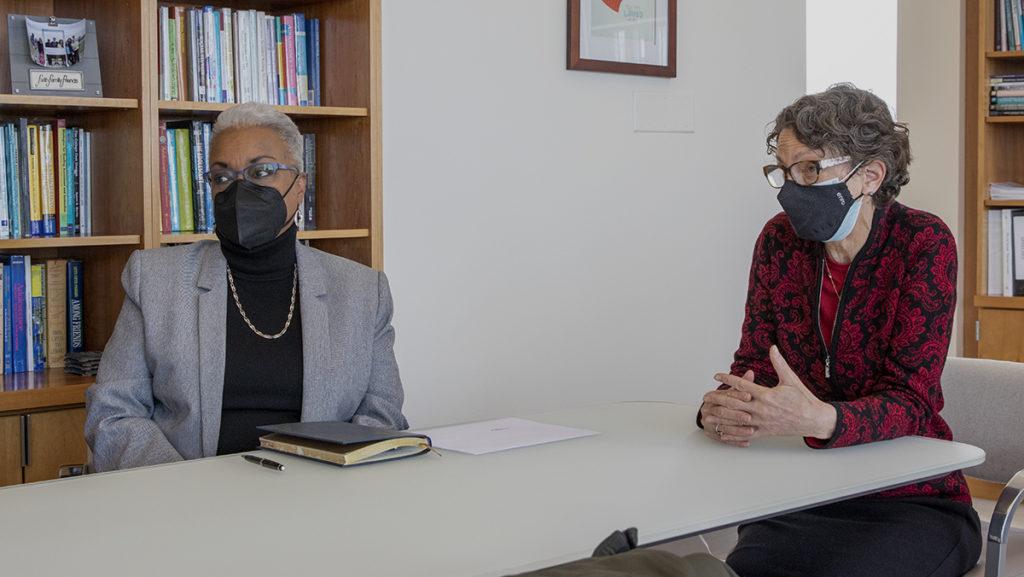A group of Ithaca College alumni, faculty and current students voiced their opposition to the implementation of the Academic Program Prioritization (APP) process during a town hall Feb. 3.
The town hall was organized by IC Alumni Against Austerity, a group of alumni that are speaking out against the implementation of the APP. Samantha DiFalco ’18, Elizabeth Lena ’18, Chris Zivalich ’12 and Sara-Maria Sorentino ’08 started the Facebook group Jan. 21, and it has 998 members as of Feb. 4. The town hall featured speakers from IC Alumni Against Austerity; Open the Books, a coalition of college community members advocating for transparency from the college; and faculty members. Speakers and attendees discussed concerns regarding transparency from the Senior Leadership Team (SLT) during the APP process, and how they can resist the faculty and program cuts as alumni.
147 people attended the town hall, including several faculty members who have been notified that their position at the college will not be renewed. The “Shape of the College” draft recommends 116 full-time equivalent faculty positions be cut. Some faculty members who have been notified their positions were recommended for termination have added their names to a list that is circulating on social media.
One faculty member, Alexander Moon, assistant professor in the Department of Politics, spoke at the town hall about his concern for his job. Other faculty members attended but were not official speakers at the town hall.
Moon said he has been teaching in the Department of Politics for 21 years, and he does not think he will be able to find another job that would replace even half of his income from his current position.
“I love my job, and I love being in academia, I love teaching, I love reading and writing, and I’m sort of bummed that I’m not gonna be able to do that,” Moon said. “But mostly what I’m worried about is keeping my house, and I have a 12-year-old daughter, and I don’t want her to feel like the structure of her life that she depends on could just fall apart in a second.”
Moon said the 2021–22 academic year will be his final year teaching at the college.
The Department of Politics sent a letter to all current and former politics students Feb. 3 that rejected Moon’s and Juan Arroyo’s, assistant professor in the Department of Politics, terminations.
“Our unanimous departmental response to APPIC, and to the Provost and President, is that we reject their termination of our valued colleagues,” the letter states. “Losing them is a mistake that will have a large negative logistical and curricular impact on our department and on the college.”
Zivalich said the goal of IC Alumni Against Austerity and the town hall is to raise awareness among alumni about the faculty and program cuts. Zivalich said the group is working to convince the SLT to slow the APP process and be more transparent about how decisions on faculty and program cuts are being made. Similarly, in October 2020, the Faculty Council requested the SLT slow the APP process, but the SLT denied this request.
“We want the college to recognize this is very serious, and this is something that cannot be done quickly,” Zivalich said. “It’s something that needs to take into consideration the long-lasting impact that these individuals and programs have on students’ lives.”
The group discussed methods to achieve these goals during the town hall. Among these methods is a letter from IC Alumni Against Austerity to the SLT and the Ithaca College Board of Trustees. Alumni at the town hall and in the Facebook group were asked to sign the letter, and it has 53 signatures as of Feb. 4. The letter explains the group’s opposition to the APP and pledges to earmark future donations in service of preserving programs and positions.
“As the most numbered constituents of the IC community, we alumni are the guardians of a vast institutional memory,” the letter states. “We have gone on to global careers and serve as the broadest interface with the public. We represent a wealth of diverse perspectives and, as donors, have financial stakes in the institution. We deserve to be heard.”
The group asked alumni to share testimonials and encouraged alumni to send messages to the Alumni Association Board of Directors, asking them to make a statement in opposition to the APP.
Zivalich said the SLT was invited to the town hall but did not attend. Anna Gardner ’19 shared the responses she received from the SLT in the Facebook group, with members declining the invitation to protect the faculty review portion of the APP process.
Gardner presented at the town hall to explain the Ithaca Forever strategic plan and the timeline for the APP process. After Gardner’s presentation, Greg Peterson ’09 presented his understanding of the college’s financial strategy and economic history.
Peterson compared the college’s finances and enrollment to other similarly-sized private colleges in New York state like Hartwick College in Oneonta, New York, and Iona College in New Rochelle, New York, to show that Ithaca College has experienced greater drops in enrollment and has greater administrative costs per student. Ithaca College experienced a 14.5% drop in enrollment in Fall 2020 while Hartwick College saw a 1.4% increase and Iona College saw a 15% increase.
Several people attending the town hall brought up Hampshire College in Amherst, Massachusetts, as an example of a college avoiding faculty cuts. The Open the Books Coalition held a panel discussion with representatives from Hampshire College Dec. 7 to learn how the college prevented widespread faculty layoffs. This process included protests and resignations from the college’s president and board of trustees members. Hampshire College faculty made an agreement with the college to take leaves of absence, incentivize retirement and have faculty work part-time.
Tom Pfaff ’90, professor in the Department of Mathematics, speculated that the decision to resize the college was made voluntarily and not out of necessity.
“In order to sort of save positions, you have to bring in more students at some point, otherwise, you can save a couple positions, maybe, but the hundreds that we’re losing — 116 faculty lines — a lot of that is just simply because the administration, by themselves, has chosen to be smaller — a smaller college,” Pfaff said.
Enrollment at the college has decreased over the past decade and began to decline at a greater rate in 2018.
Pfaff made these comments as a part of the Q&A portion of the town hall. During the Q&A session, attendees expressed their concerns with the APP process and showed support for the faculty members who are being affected by the APP.
Gardner said IC Alumni Against Austerity recognizes the importance of immediate action in their efforts to reduce faculty and program cuts.
“We do not all agree 100% what should happen after this, but I think we have to get to the point to understand that we need this to stop the way it’s happening right now,” Gardner said.



